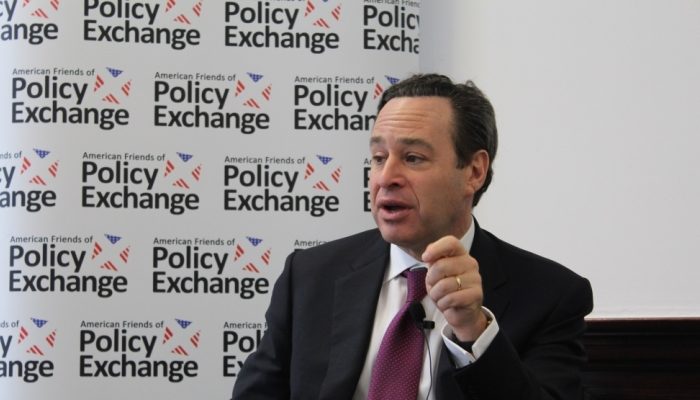
David Frum is the Senior Editor at The Atlantic and a CNN contributor. He serves also as chairman of the board of trustees of the leading UK center-right think tank, Policy Exchange. In 2001-2002, he served as speechwriter and special assistant to President George W. Bush where he famously coined the phrase ‘axis of evil’. In 2007-2008, he was a senior adviser to the Rudy Giuliani presidential campaign.
Where do you see the most exciting research and debates happening in your field?
The biggest debate in politics right now, not only in the United States but in all advanced countries: how to improve economic opportunities for middle-income workers in a globalizing world, beset by weakening families and challenged by intensifying diversity.
How has the way that you understand the world changed over time and what (or who) has prompted the most significant shifts in your thinking?
The economic crisis of 2008-2009 – and the weak and slow recovery thereafter – forced me to re-imagine why advanced market economies need social insurance. Unemployment insurance, food stamps, and retirement security programs like Social Security – these saved millions from destitution at a time when the advice “just get another job” was literally impossible. To reverse an old saying of Irving Kristol’s, I’m now ready to give two cheers for the welfare state.
In a recent article for The Atlantic, you acknowledged that Canada had ‘lurched to the left’ by electing Justin Trudeau. Do you believe the Liberal Party won handily because their populist left message simply resonated, or was it rather Stephen Harper’s poor leadership that signalled his demise?
Stephen Harper’s leadership record was excellent, not poor. That’s not to say it was faultless, faultlessness is not a feasible standard in politics. But he got the big things right through a time of extreme global economic distress. Yet Canada too is shadowed by the anxieties of the middle class, and it was those anxieties that decided the election outcome.
What accounts for this lurching to the left, and why is left wing populism on the rise, not just in Canada, but also with Bernie Sanders in the U.S., as well as Jeremy Corbyn in the U.K.?
Right populism is rising too, and it may ultimately prove much more important. Remember, Jeremy Corbyn only won a party leadership contest. Meanwhile, movements like the French National Front, the Scottish Nationalists, Poland’s Law and Justice party are winning actual elections on programs that join defense of the existing welfare states to the assertion of national sovereignty.
In opposition to Jeremy Corbyn is Prime Minister David Cameron, whose very own Conservative Party recently won the U.K. general election. What can the Republican Party in the United States learn from the success of the Conservative Party in the U.K.?
Join your defense of markets and lower taxes to a message of social modernization, economic inclusion, and environmental protection.
One potential contender for president is Jeb Bush. Should Jeb defend his brother’s foreign policy record as president or attempt to brush off the Bush legacy as fervently as possible?
There is no good answer to this question. If Jeb Bush defends his brother, he turns this election into an argument about the past, not a program for the future – always a path to defeat. If Jeb Bush disavows his brother, he ignites a controversy that will consume and destroy him. This dilemma was eminently foreseeable. Indeed, it was foreseen. Which makes Jeb Bush’s decision to seek the presidency such a baffling decision.
What do you make of the state of the Republican Party when it appears that Donald Trump is topping many national polls and is certainly a contender for the Republican nomination?
I’ll have more to say about this in a long essay for The Atlantic, but here’s an advance glimpse: the Republican party has not done a good job championing the economic interests of its rank-and-file supporters. They want Medicare maintained and immigration restricted. With barely an exception, their leaders have offered the opposite. That’s a formula for mutiny.
Are you optimistic and confident that the Republican Party can recapture the White House come 2016?
Hopeful, but not confident.
It could be argued that both Democrat and Republican candidates have to appeal to the evolving public opinion of the day. In your former position as speechwriter for President George W. Bush, how much of the speechwriting process was influenced by public opinion?
Democracy is a never-ending contest to gain and mobilize consent. Every word a president says is necessarily directed to that end. Public opinion is always uppermost in mind.
What would you say is the most important advice for a young scholar in IR or a journalist just starting out?
Learn a second language and live at least a couple of years abroad.
–
This interview was conducted by James Resnick. James is an Associate Features Editor of E-IR.